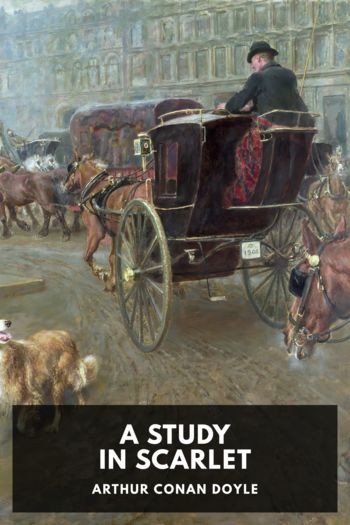The Iron Heel by Jack London (love novels in english .txt) 📕

- Author: Jack London
Book online «The Iron Heel by Jack London (love novels in english .txt) 📕». Author Jack London
“I met men,” he said, “who invoked the name of the Prince of Peace in their diatribes against war, and who put rifles in the hands of Pinkertons42 with which to shoot down strikers in their own factories. I met men incoherent with indignation at the brutality of prizefighting, and who, at the same time, were parties to the adulteration of food that killed each year more babes than even red-handed Herod had killed.
“This delicate, aristocratic-featured gentleman was a dummy director and a tool of corporations that secretly robbed widows and orphans. This gentleman, who collected fine editions and was a patron of literature, paid blackmail to a heavy-jowled, black-browed boss of a municipal machine. This editor, who published patent medicine advertisements, called me a scoundrelly demagogue because I dared him to print in his paper the truth about patent medicines.43 This man, talking soberly and earnestly about the beauties of idealism and the goodness of God, had just betrayed his comrades in a business deal. This man, a pillar of the church and heavy contributor to foreign missions, worked his shop girls ten hours a day on a starvation wage and thereby directly encouraged prostitution. This man, who endowed chairs in universities and erected magnificent chapels, perjured himself in courts of law over dollars and cents. This railroad magnate broke his word as a citizen, as a gentleman, and as a Christian, when he granted a secret rebate, and he granted many secret rebates. This senator was the tool and the slave, the little puppet, of a brutal uneducated machine boss;44 so was this governor and this supreme court judge; and all three rode on railroad passes; and, also, this sleek capitalist owned the machine, the machine boss, and the railroads that issued the passes.
“And so it was, instead of in paradise, that I found myself in the arid desert of commercialism. I found nothing but stupidity, except for business. I found none clean, noble, and alive, though I found many who were alive—with rottenness. What I did find was monstrous selfishness and heartlessness, and a gross, gluttonous, practised, and practical materialism.”
Much more Ernest told them of themselves and of his disillusionment. Intellectually they had bored him; morally and spiritually they had sickened him; so that he was glad to go back to his revolutionists, who were clean, noble, and alive, and all that the capitalists were not.
“And now,” he said, “let me tell you about that revolution.”
But first I must say that his terrible diatribe had not touched them. I looked about me at their faces and saw that they remained complacently superior to what he had charged. And I remembered what he had told me: that no indictment of their morality could shake them. However, I could see that the boldness of his language had affected Miss Brentwood. She was looking worried and apprehensive.
Ernest began by describing the army of revolution, and as he gave the figures of its strength (the votes cast in the various countries), the assemblage began to grow restless. Concern showed in their faces, and I noticed a tightening of lips. At last the gage of battle had been thrown down. He described the international organization of the socialists that united the million and a half in the United States with the twenty-three millions and a half in the rest of the world.
“Such an army of revolution,” he said, “twenty-five millions strong, is a thing to make rulers and ruling classes pause and consider. The cry of this army is: ‘No quarter! We want all that you possess. We will be content with nothing less than all that you possess. We want in our hands the reins of power and the destiny of mankind. Here are our hands. They are strong hands. We are going to take your governments, your palaces, and all your purpled ease away from you, and in that day you shall work for your bread even as the peasant in the field or the starved and runty clerk in your metropolises. Here are our hands. They are strong hands!’ ”
And as he spoke he extended from his splendid shoulders his two great arms, and the horseshoer’s hands were clutching the air like eagle’s talons. He was the spirit of regnant labor as he stood there, his hands outreaching to rend and crush his audience. I was aware of a faintly perceptible shrinking on the part of the listeners before this figure of revolution, concrete, potential, and menacing. That is, the women shrank, and fear was in their faces. Not so with the men. They were of the active rich, and not the idle, and they were fighters. A low, throaty rumble arose, lingered on the air a moment, and ceased. It was the forerunner of the snarl, and I was to hear it many times that night—the token of the brute in man, the earnest of his primitive passions. And they were unconscious that they had made this sound. It was the growl of the pack, mouthed by the pack, and mouthed in all unconsciousness. And in that moment, as I saw the





Comments (0)